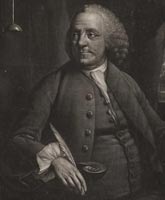Benjamin Franklin: Difference between revisions
Tcraport25 (talk | contribs) |
Tcraport25 (talk | contribs) No edit summary |
||
| Line 11: | Line 11: | ||
==Scientific Achievements== | ==Scientific Achievements== | ||
==Future Implications of Franklin's Work== | ==Future Implications of Franklin's Work== | ||
| Line 23: | Line 20: | ||
==References== | ==References== | ||
Revision as of 23:00, 2 December 2015
Claimed by Trevor Craport
Short Description of Topic
Personal Life
Benjamin Franklin was born on January 6th, 1706 in Boston, Massachusetts Bay, British America and died on April 17th, 1790. He attended Boston Latin School until the age of ten, but never did graduate; however, he did further his education through extensive reading and other self teaching methods for much of his life. Ben was a prominent figure in the beginning years of the United states and is known as one of the founding fathers of the country. Alongside the founding of the United States, he was also a leading author, a politician, a diplomat, and most significantly an inventor and scientist. Benjamin was a scientist during the scientific periods known as the American Enlightenment and the history of physics in which he played a key role in contributing a plethora of discoveries and inventions.
Scientific Achievements
Future Implications of Franklin's Work
External links
Internet resources on this topic
